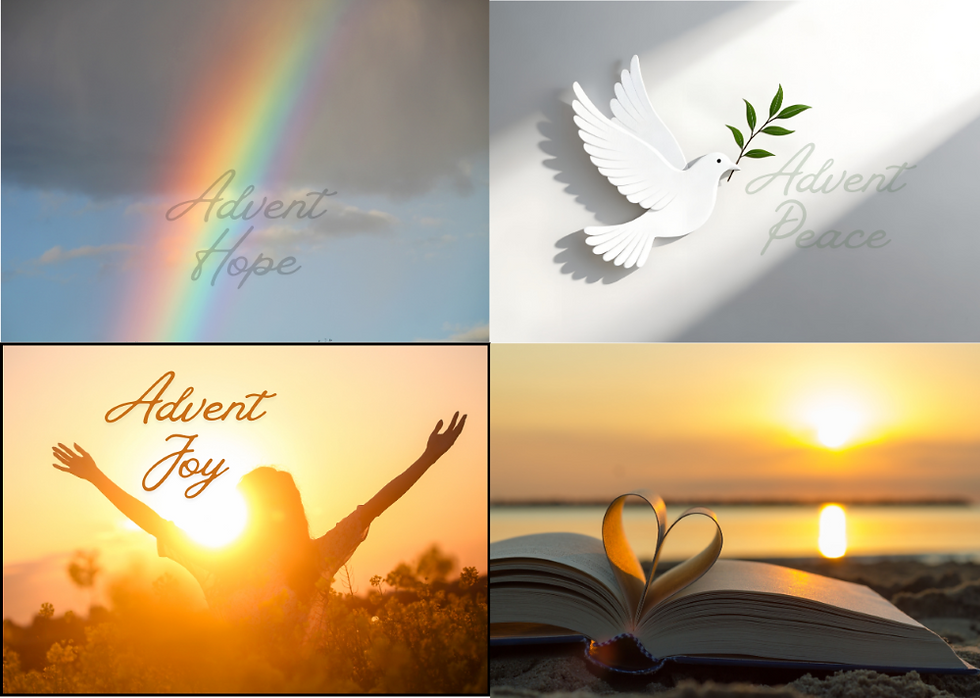Let’s go into the mountains
- Simon Mattholie

- Sep 12, 2024
- 3 min read
I begin with confession. Firstly, I'm not too fond of heights. Therefore, mountains, for me, are best viewed from a safe distance. I am astounded by those who climb, especially those with a passion for free climbing, which seems to involve holding on to the thinnest of ledges with the least amount of safety gear. Secondly, I live in East Anglia, and we get excited by the undulations of curb stones. Suffolk, in particular, is not recognised for its rugged terrain. However, over the last two weeks, I've been pondering a phrase in Victoria Loorz's book, 'Church of the Wild,' where she discusses the importance of going into the mountains.

Loorz notes the number of times Jesus enters a wild space or goes up a mountain to pray. Dutifully, many of us have preached, taught and modelled the importance of prayer times as illustrated by Jesus in the Gospels. Scores of books are available on the subject, and I think, generally, we know how to pray but the bit that has been missing for me is best summarised by this quote from Loorz:
“…learning how to pray is a big agenda for churches. Centering prayer. Taizé prayer, Silent prayer. Petition prayer. Liturgical prayer. Confessional prayer. Prayer without ceasing prayer. Prayers of the people prayer. But when was the last time you were taught how to go to the mountain?”[1]
It is a good question. If I may be allowed to generalise for a moment, our prayers are often offered with problems to solve, our solutions to be blessed by God, and postures we might adopt. We are pretty activistic in our prayers, and I am not suggesting that this is a bad thing, but Loorz’s question still haunts. I wonder if going to the mountain or the wild spaces involves an emptying of agendas, lists and requests and instead reminds us of the relational dynamic of prayer. It is an opportunity for conversation with a Holy God; as such, would it not be a good practice for us to listen for a while and observe God's beauty and wonder through creation? I love Frank Skinner's honesty in his book, A Comedian’s Prayer Book, where he says, “I thought tonight I’d just listen for a change. No pressure.”[2] That involves a stripping away of ego and placing us in a position of vulnerability, accepting that we have a loving God who would never hurt or take advantage of us. Maybe this is part of what it means to go into the mountains.
However, there is more to it than simply emptying oneself. I'm curious if the physicality of being outside, immersed in nature, was part of what Jesus was demonstrating and part of what we're not as good at emulating. I remember being taken aback by Richard Rohr's suggestion that the first act of divine revelation is creation itself and that the first Bible is the Bible of nature - but is it really shocking? This phrase is replicated throughout scripture in many places, for example:
‘The heavens declare the glory of God, and the sky above proclaims his handiwork.’(Psalm 19:1)
Many, I am sure, have had fantastic holidays and witnessed landscapes that have taken our breath away, which may have naturally led to prayers of praise. Still, it would be good if we did not limit such experiences to holidays and instead began to investigate what going into the mountains and wild places may mean for us as part of our everyday moments with God, both individually and corporately. It is not merely altering the physical location of prayer but rather entering into a mysterious connection that comes when we enter a place, set aside our egos and agendas, and simply join in nature, connecting intimately rather than merely enjoying the view.
Let the heavens be glad, and let the earth rejoice; let the sea roar, and all that fills it; let the field exult, and everything in it! Then shall all the trees of the forest sing for joy (Psalm 96:11-12 ESV)
To quote again from Loorz;
“The natural world – that world where we already belong – is an alluring invitation into the sacred, into relationship with something larger. And that very sacred presence invites us into the wild. The whole process is holy. It is a dynamic, a reciprocity, a loving conversation, a relationship – one that includes me and you and God and the whole wide, alive world.”[3]
So, this week, why not join me and go into the mountains where we might pray.
Simon Mattholie
Chief Executive, Rural Ministries
[1] Loorz, V. (2021) Church of the Wild, Broadleaf Book, p.53
[2] Frank., S (2021) A Comedian's Prayer Book John Murray Press. Kindle Edition, p. 37
[3] Loorz, V. (2021) Church of the Wild, Broadleaf Book, p.67



Comments